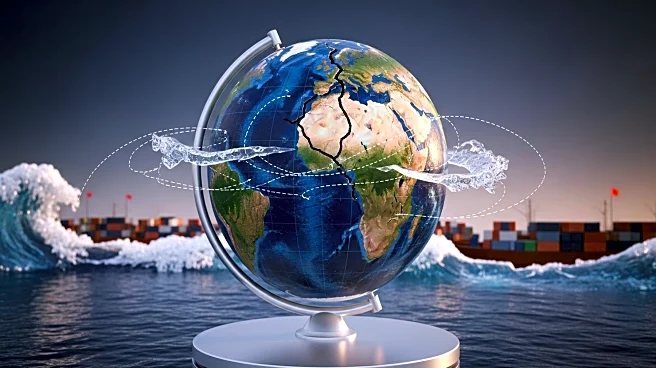What is the story about?
What's Happening?
The International Maritime Organization (IMO) is facing polarized views ahead of a vote on the Net Zero Framework, aimed at achieving carbon neutrality by 2050. The framework proposes carbon levies to encourage compliance, but requires a two-thirds majority from the 176 voting members for adoption. The United States has openly expressed opposition to the framework and is actively lobbying other nations to reject it. Shipping companies are divided, with some supporting the framework due to investments in zero-emission vessels, while others warn of excessive financial burdens. The decision-making process within the IMO typically relies on consensus, but the current polarization may lead to a postponed vote and framework modifications.
Why It's Important?
The outcome of the IMO vote has significant implications for the global shipping industry, which is responsible for 90% of international trade. Adoption of the Net Zero Framework could accelerate the transition to green marine fuels and incentivize investments in sustainable shipping practices. However, opposition from major stakeholders like the United States could hinder progress and delay the implementation of necessary environmental regulations. The decision will impact shipping companies, ports, and consumers, potentially leading to increased costs and operational changes.
What's Next?
If consensus is not reached before the MEPC meeting, the vote may be postponed, allowing time for framework modifications to gain broader support. Shipping companies will continue lobbying their national representatives, and the United States may intensify its efforts to sway other nations. The outcome will determine the pace of decarbonization in the maritime sector and influence future regulatory approaches.
















